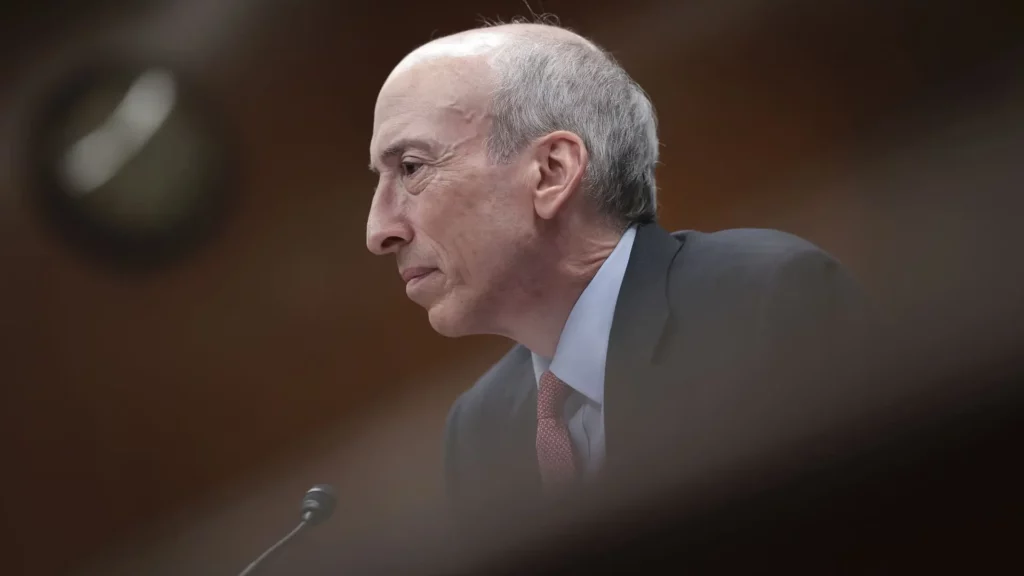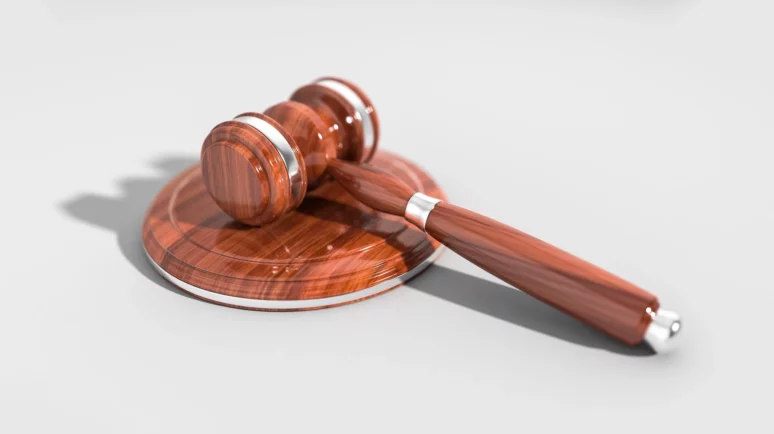Uniswap Sued? Protocol’s Inventor Accuses SEC of Attacking Good Actors and Letting FTX ‘Slip By’

The SEC adds yet another crypto legal battle to its roster. (Photo by Win McNamee/Getty Images)
- Uniswap Labs may soon come under enforcement action from the SEC.
- Since 2018 Uniswap has handled some $2 trillion in transaction volumes.
- The SEC’s complaint hinges on whether or not the SEC can legally define a majority of crypto tokens as securities.
The U.S. Securities and Exchange Commission (SEC) has notified decentralized finance (DeFi) platform and protocol creators, Uniswap Labs, that it is planning to take legal action against the company.
As the SEC continues its rhetoric that most tokens are securities, Uniswap finds itself as the latest addition to the regulator’s long list of crypto lawsuits for allegedly acting as an unregistered securities broker and securities exchange.
“Ready to Fight”
On Wednesday 10, 2024, Uniswap Labs published a blog post to notify the community that they had received a Wells notice, which is essentially a fore-warning from the SEC that lets the recipient know that they are preparing for legal action following investigations.
Uniswap founder Hayden Adams also took to social media to outline his position. Notably, Adams criticizes the SEC for allowing “bad actors like FTX slip by”, instead of creating “clear, informed rules,” they have instead opted to focus on attacking the likes of Coinbase and Uniswap, who have been “long-time good actors.”
Hayden highlights that since its inception in 2018, Uniswap has handled over $2 trillion in transaction volume via its “transparent, fair, secure, and accessible” financial infrastructure, all from the comfort of a New York City office.
Given the SEC’s hawkish stance on crypto, Hayden reflects on his decision to remain in the U.S. Hayden writes :
“I believe that blockchain is incredibly powerful technology. Like the Internet, it’s here to stay. So someone needs to figure it out, and it might as well be us.“
Seemingly, this echoes sentiments shared by the likes of Coinbase and Ripple (XRP), who are locked into legal disputes with the regulator and are adamantly trying to establish regulations around crypto that won’t stifle the domestic industry.
Worth Fighting For
Hayden assumes that this battle will go on for years, with the potential for it to “go all the way to the Supreme Court” with the future of financial technology and the crypto industry hanging “in the balance.”
“I think freedom is worth fighting for. I think DeFi is worth fighting for.“
Arguably, the U.S. crypto industry is beginning to lose its edge as developers and firms flock to friendlier jurisdictions to set up shop and conduct business elsewhere.
In their blog post , Uniswap writes:
“Taking into account the SEC’s ongoing lawsuits against Coinbase and others as well as their complete unwillingness to provide clarity or a path to registration to those operating lawfully within the U.S.[…]”
The pending case against Uniswap could have huge implications for the entire DeFi sector and decentralized exchanges (DEXs) depending on the outcome, which is difficult to predict at this point as the SEC Vs Ripple lawsuit is likely to set a legal precedent for all crypto cases going forward.
“[…]we can only conclude that this is the latest political effort to target even the best actors building technology on blockchains.”
Strong Legal Arguements
Using these cases as prime examples, Uniswap outlines the legal position of the platform based on these recent findings.
Amongst its many arguments, it notes that a court decision in the SEC Vs Ripple case made it clear that “secondary market transactions in digital assets generally do not constitute investment contracts” – which is now also true of Coinbase , and is precisely the type of asset traded on Uniswap.
Secondly, it highlights that a recent ruling in the SEC Vs Coinbase battle saw the court throw out the “SEC’s claim that crypto wallets were brokers, even if they take fees.”
Perhaps most importantly, Uniswap posits that the UNI token does not meet the legal definition for any type of security, which includes failing to meet the definition of an “investment contract” under the Howey test.
Uniswap argues that with no contract or promise between Uniswap Labs and its 300,000+ token holders, no common enterprise, and the fact that UNI’s value does not solely depend on the company’s efforts, that Uniswap, much like Bitcoin (BTC) and Ethereum (ETH), is sufficiently decentralized and therefore not a security.
The Road Ahead
In February 2024, the SEC sought to expand its regulatory reach into DeFi with new rules that broadened the definition of financial securities dealers to cover large-sized DeFi liquidity providers.
Under these new rules which come into effect within 60 days of being published in the Federal Register, entities commanding at least $50 million worth of assets that are considered to be securities can now be classified as “dealers”.
In the context of crypto, these rule changes hinge on the SEC’s unsettled argument that a majority of crypto tokens are securities, and that the tokens traded on Uniswap are also securities.
Arguably, this is likely to be settled following the outcome of the SEC Vs Ripple case, which began in 2020 and could reach a conclusion in the coming weeks.
Should the courts rule that XRP is indeed a security, then the implication is that a vast majority of cryptos would fall under the purview of the SEC, which could be detrimental to U.S-based crypto firms and Uniswap’s legal defense.


